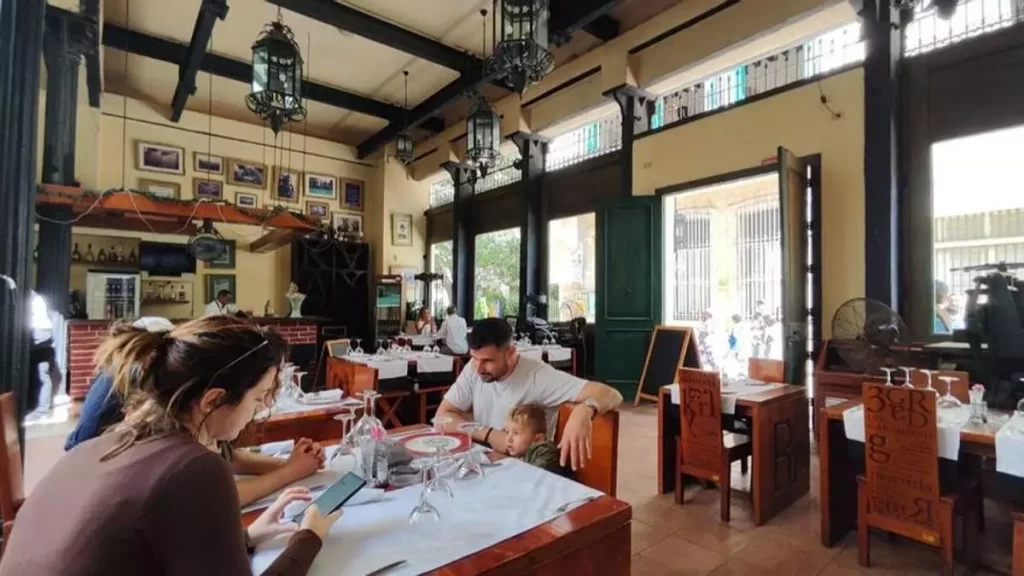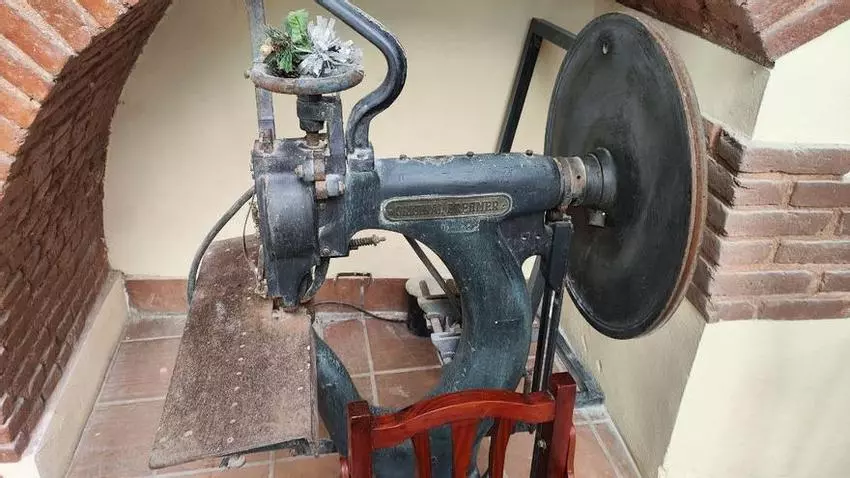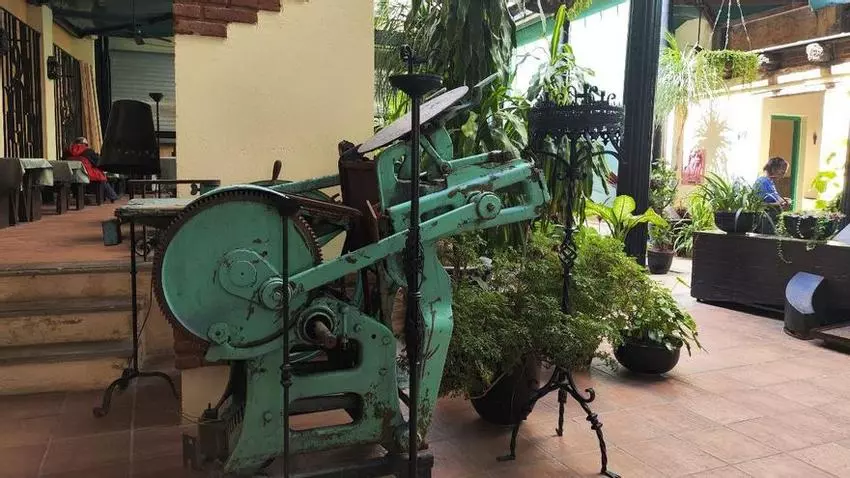
![]() 14ymedio, Juan Diego Rodríguez, Havana, February 22, 2024, Juan Diego Rodríguez — Old newspaper presses, paper cutters, cast iron poles and typographical motifs on the walls in the La Imprenta (The Printing Press) restaurant located at Mercaderes 208 in Old Havana, show the stamp of the late Eusebio Leal. The Historian of the City did not spare any expense to turn a demolished 19th century workshop into a place that, at the height of his career, strived to emulate the Floridita and the Bodeguita del Medio.
14ymedio, Juan Diego Rodríguez, Havana, February 22, 2024, Juan Diego Rodríguez — Old newspaper presses, paper cutters, cast iron poles and typographical motifs on the walls in the La Imprenta (The Printing Press) restaurant located at Mercaderes 208 in Old Havana, show the stamp of the late Eusebio Leal. The Historian of the City did not spare any expense to turn a demolished 19th century workshop into a place that, at the height of his career, strived to emulate the Floridita and the Bodeguita del Medio.
The waitresses still have the same delicacy with foreign clients that Leal demanded, and they now use a resounding euphemism: lobster and bread are not lacking but are “affected”. Although aimed at tourism, La Imprenta suffers from the same shortcomings as other state-managed premises, and diners soon realize it.
The smartest take a quick look at the menu by the door, and, before it’s too late, make a decision. “Are you going?” one of the employees asks an Italian tourist who disappeared up Mercaderes.

Those who stayed for lunch this Wednesday can order a glass of juice stuffed with ice, a tuna tower with vegetables and some dishes that the habaneros have started calling “gourmet,” not because of their quality but because of their small size. The chairs of La Imprenta have different type faces on the back and the names – such as Bodoni or Garamond – of their inventors.
The tablecloths have patches,” noted a Cuban diner, avoiding resting his elbows on the stains of the fabric. A group of Canadians occupied a table near the window and asked for some starters. The waitress brought flakes of discolored ham and cheese, but they were denied the bread. “It’s ‘affected’,” she said.
Other dishes began to parade around the table. Potato puree with sweet potato flavor, yellow rice with a kind of ham and very little salt, a minimum portion of ropa vieja*, fish. “Any wine?” the Canadians ask. With pedagogy and some English, the waitress explains: “In Cuba there are no wines; the ones we have are Spanish.”

At the end of the meal, they wait for the dessert, fried ice cream. “The ice cream is delayed,” the employee warns once again, “and the fryer does not want to fry. It’s done working.” Canadians, of course, look at each other without understanding. “The bill, mi amor?” says the waitress, concluding the banquet.
The total is more than 5,000 pesos and brings a new dilemma. As soon as one of the diners draws a colorful Canadian bill from his wallet, the waitress grimaces and calls her boss. “Only euros or green [U.S. dollars]; we can’t accept Canadian dollars,” he explains. Resigned, the customers pay in Cuban pesos.
In a hurry to leave, those who eat lunch almost never notice La Imprenta’s machines. Artifacts from the beginning of the twentieth century, the restored presses of the Oswego and Brehmen brands pay tribute to a craft that now belongs to another era, and whose mythology Leal hoped to translate into foreign currency.
In 2010, the Historian’s Office mobilized a team of architects, joiners, blacksmiths and artists to remodel the old printing establishment, La Habanera, active from the 19th century until the triumph of Fidel Castro in 1959. The painter Juan Carlos Botello and his assistant Yailín Pérez Zamora were in charge of creating an immense mural on the main wall of the restaurant, and two lieutenants from Leal’s investment department – Loreta Alemañy and Yaumara Fernández – gave the go-ahead to the project.
Professional cooks and baristas were also hired to create a “thematic and emblematic” cocktail, in the style of the mojito or the daiquiri, that would characterize La Imprenta and make it internationally famous. To this day, the restaurant with the “affected” products has not found its brand or a particular flavor, and the Historian who created it no longer roams the streets of Havana.
*Translator’s note: Ropa vieja means “old clothes” but the dish is shredded beef.
Translated by Regina Ananvy
____________
COLLABORATE WITH OUR WORK: The 14ymedio team is committed to practicing serious journalism that reflects Cuba’s reality in all its depth. Thank you for joining us on this long journey. We invite you to continue supporting us by becoming a member of 14ymedio now. Together we can continue transforming journalism in Cuba.
